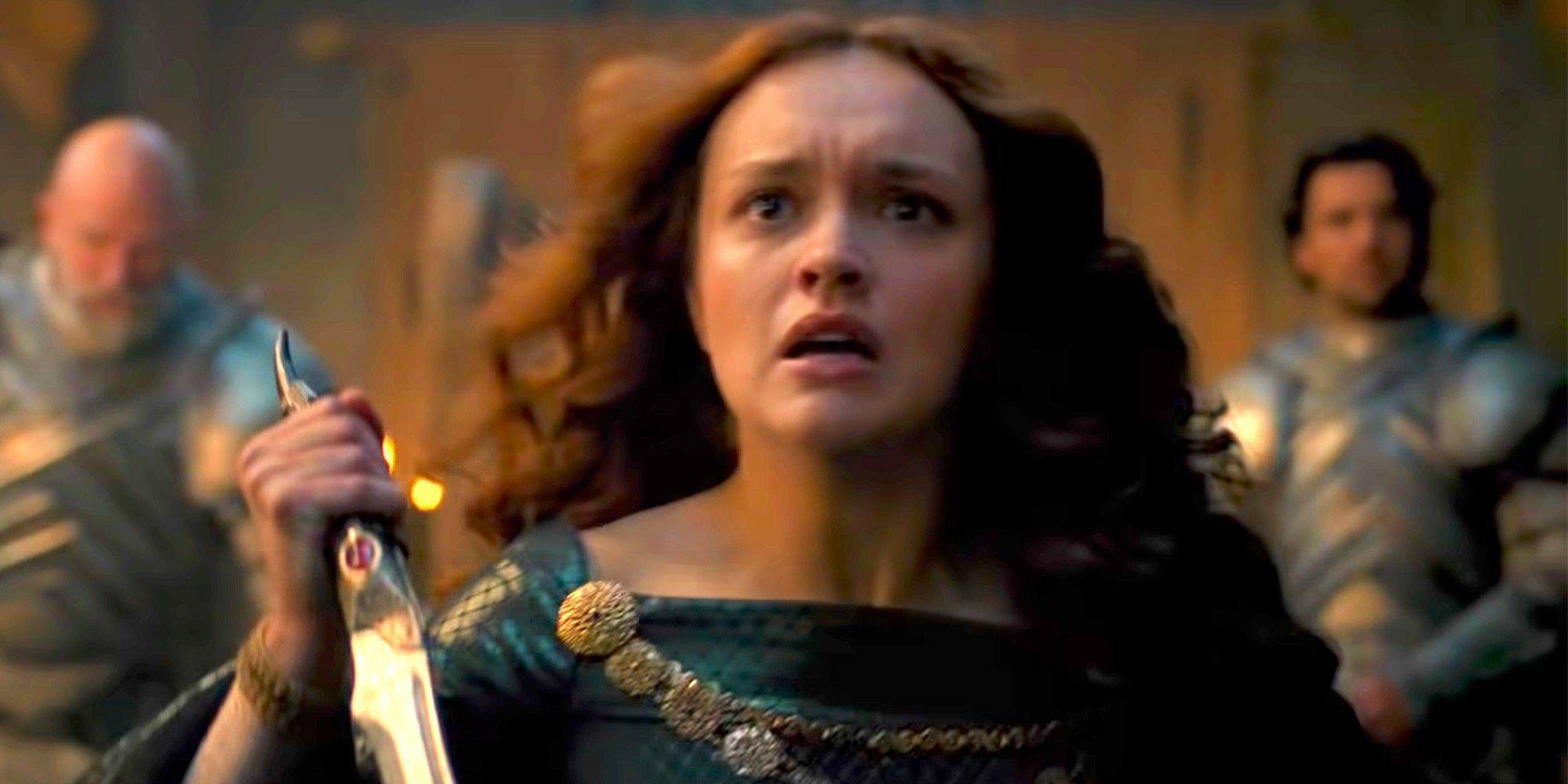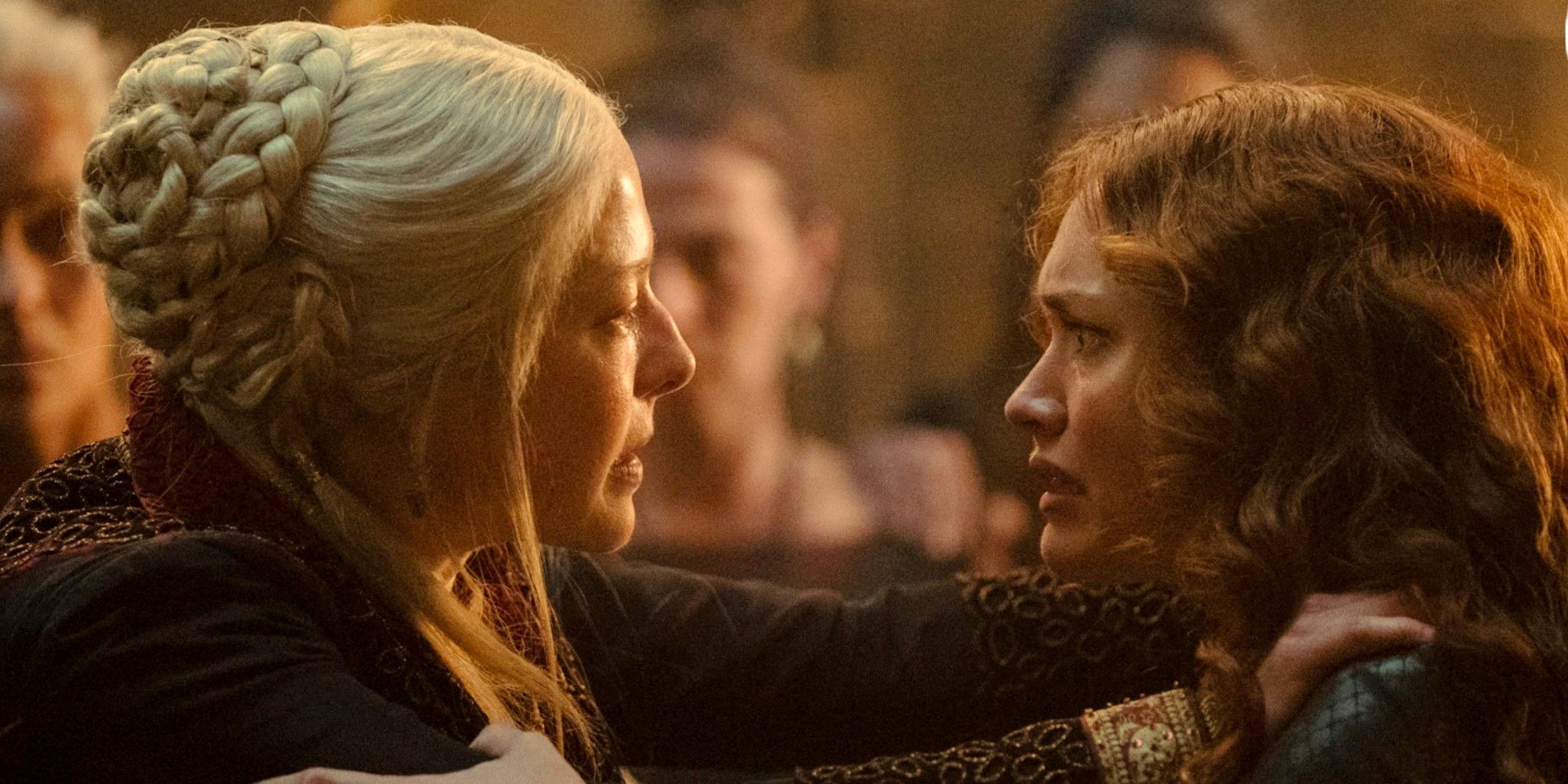House of the Dragon's adult Alicent actor, Olivia Cooke, ignored a major character note from the showrunners. House of the Dragon is HBO's first Game of Thrones spinoff series which chronicles the history of House Targaryen 200 years before the events of its parent series. Adapting the events depicted in George R.R. Martin's book Fire & Blood, the prequel series saw Ryan Condal and Miguel Sapochnik taking over as showrunners for season 1, though the latter recently left the show ahead of season 2.
Though House of the Dragon begins hundreds of years before Game of Thrones, squabbling over the Iron Throne is as contentious as ever. The prequel show introduces a bunch of new players in Westeros, including Paddy Considine as King Viserys, Matt Smith as Prince Daemon, Milly Alcock as Princess Rhaenyra, Emily Carey as Queen Alicent, Rhy Ifans as Ser Otto, Steve Toussaint as Lord Coryls, and Fabien Frankel as Ser Criston. It's long been known that, midway through House of the Dragon season 1, a 10-year time jump would occur and result in many of the show's younger actors being replaced by older stars. The biggest recastings include Emma D'Arcy taking over Rhaenyra, along with Cooke as Alicent.
During a recent interview with EW ahead of episode 6's time-jump, Cooke discusses how she helped shape Alicent after Carey portrayed her for the first 5 episodes. Condal and Sapochnik told the House of the Dragon star to interpret the character as "a woman for Trump," though Cooke decided to ignore the note and play her differently. Read what she says below:
I just didn't want to give them any more mental real estate than they already had. So I tried to find a different route into her, but I could see what they were saying with this complete indoctrination and denial of her own autonomy and rights. I just couldn't be asked to go down that road.
How Cooke Helped Shape Queen Alicent
Cooke ultimately ignored Condal and Sapochnik's advice for her own personal reasons and decide to take a slightly different route with the character. However, it's not difficult to see what the House of the Dragon showrunners meant with their direction. In her younger years, Alicent supported Rhaenyra's claim to the throne, but not as the two childhood friends grow apart. Alicent is indoctrinated, mainly by her father, to believe that a woman is not fit to rule Westeros. As a woman herself, this belief essentially goes against Alicent's own self-interest, as it is "a denial of her own autonomy and rights," as Cooke elegantly states.
Cooke is in a precarious situation coming into House of the Dragon at episode 6, especially after Carey's portrayal of young Alicent has been so well-received. Either Cooke could have let Carey's performance as Alicent inform her own, or disregard it in order to form her own interpretation. Based on her comments above, it sounds like Cooke wasn't afraid to make the character her own, even if it meant ignoring the showrunners' notes. Audiences will get the first full taste of Cooke's performance as Alicent in the next episode of House of the Dragon this Sunday night on HBO.
Source: EW


